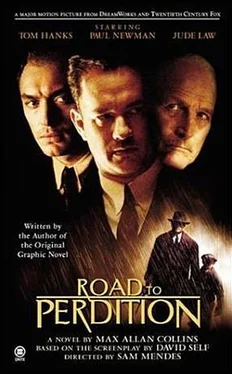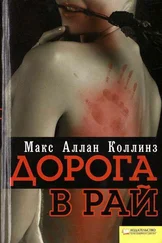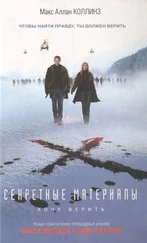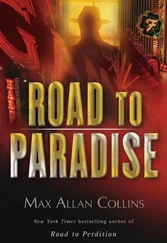For example, I never heard my father referred to as the “Angel of Death,” and whether that phrase was ever actually applied to him — or was merely some journalist’s contrivance — I can only guess. I suspect there’s at least a grain of truth in it, because I did on occasion hear him called “Angel,” by men we met on the road .
According to one writer, John Looney stood before my father, in the study of the mansion on the bluff, and raised a hand as if in benediction, saying, “In the Great War you made me proud — now you will be my soldier of soldiers. But I will never ask you to employ your terrible talents upon the innocent, only the disloyal... or other soldiers. Soldiers of my enemies, who will be visited by my Michael — my archangel of death.”
This may have been spun out of melodramatic whole cloth, but my research indicates some underlying truth, anyway. Certainly my father’s reputation extended beyond the Tri-Cities. This substantiates the claims that Papa was often loaned out by Looney to affiliated gangs around the country, including that of Al Capone and his associate Frank Nitti .
By all accounts, Michael O’Sullivan was efficient, unflappable, deadly. “Was it his somber, almost regretful expression that made them call him the Angel?” one writer wondered .
That question, which implies its own answer, I fully understand: I saw that somber, sorrowful expression many times, on the road. The first time was that night, that awful night .
The rain turned to snow, the windshield wipers icing up. His father drove slowly, carefully, watching the road unwind before him, lost in thought, troubled but trying not to show it. Young Michael shivered, staring at the man next to him, his eyes accusing him, but also studying this hero turned monster.
Only the scraping of the wipers, the blowing of snow, and the jostling of wheels on pavement created any sound; otherwise, silence shrouded the car.
Finally his father glanced at him and said, quietly, “What you did was wrong.”
Michael reacted as if cold water had been splashed in his face. “What I did was wrong?”
And with sudden recklessness, wanting to do anything to get away from the man he’d idolized, the boy threw open the car door. Snow and chill air rushed in, and his father slammed on the brakes, car skidding, but slowing enough for Michael to jump into a snowbank, making a hole in its brittle icy surface, then pick himself up and take off into the nearby woods.
The boy wasn’t thinking — he was running, and he was feeling, but not thinking; the woods were brown and white and their darkness promised shelter, not danger. The man running after him — footsteps breaking the glassy surface of frozen water on snow — was the danger... the man who had pretended to be his father...
“Michael!” the man called.
And the boy ran harder, through the trees, feet crunching the sugary frozen sheet of ice and snow, cracking twigs and crackling leaves, a landscape as beautiful and forbidding as a fairytale forest, that childhood place where Little Red Riding Hood, Hansel and Gretel, and Snow White so often found themselves... but wolves and witches were in those woods, too, like the beast pursuing him, the creature that had been his father, a thousand years ago, tonight.
“Michael!”
The sound of his father’s footsteps terrified the boy, but something in him longed to stop, to turn and run open-armed to the man and hug him, so Papa could explain away the blood and death... and then his feet made up his mind for him, tripping over a buried gnarl of root, sending him stumbling into the snow, breaking through its crisp crust of ice into something soft, soothing, but very cold.
Then his father was standing over him. The trees loomed, icicles hanging, melting, like long ghastly faces; the trees had faces, too, distorted ones...
But his father looked... like his father. His expression was sad — sadder than Michael had ever seen it, and his father hadn’t ever been a particularly cheerful man.
“Michael... son... ”
The boy couldn’t help it — he began to cry... not in fear. Not anymore, not after seeing that look on Papa’s face. Papa was sad. Michael, too.
He knelt beside his boy. “Son... are you all right?”
“Why... why did you kill those men?”
“Because they had guns, and they’d have killed me.”
“But Uncle Connor... he shot first... ”
“I know. Come with me. We can talk about it in the car.”
“Have you killed other people?”
“Yes.”
“In the war?”
“Yes.”
“... But not just in the war.”
Papa shook his head, then held out his hands. “Come on, back to the car... you’ll freeze out here.”
“How many did you kill?”
“Son... ”
Michael felt more relaxed. Less afraid. And that enabled the physical pain to edge out the emotional upset, and assert itself; wincing, he said, “I think... I think maybe I hurt my leg.”
“Here... I’ll carry you.”
The boy allowed his father to cradle him in his arms, to lift him from the snow, and carry him like the child he was, out of the woods. Michael even rested his head against his father’s chest, wishing he could forget what he’d seen tonight, knowing he never would.
As they drove, they spoke — softly, in a grown-up way that was new between them.
“Why, Michael?” his father asked.
“I just... just wanted to see you in action. I wanted to be proud.”
His father, eyes on the road, swallowed. Then he said, calmly, “It’s natural for a boy to want to be proud of his father. But, son — what I do for a livin’ is not to be admired.”
The boy looked sharply at his father. “Then why do you do it, Papa?”
The night was dark, flecked by snow, the world vague on either side, the beams of the headlights dancing with white flakes; but the road ahead was visible enough.
“Do you know what a soldier is, Michael?”
“Sure. You were one in the war.”
“Yes. But life is like a war, sometimes. You see that, don’t you?”
The boy understood; on his paper route, he had seen the people out of work, hungry, huddling in the recessions of doorways, lining up for Mr. Looney’s free soup.
Obviously choosing his words with care, Papa said, “I’m like a soldier, son. And a soldier does his duty.”
“Even... killing?”
Papa’s face was hard. “That’s what soldiers do.”
Michael thought about that for a while; then, shaking his head, he said, “Papa, it seems wrong... The Church teaches us thou shalt not kill... ”
“The church is right... but I have a duty to my family. That means I have to work. And bein’ a soldier, son... that’s the only work I know.”
Michael thought some more, then he blurted, “I don’t want to be a soldier.”
For the first time this evening, his father smiled — just a little. “Good,” he said.
They fell into a silence — a slightly more comfortable one, though Michael remained torn within himself: this talk with his father, it was rare, it was special, a new bond had been formed between them. But that bond had been formed out of something bad. Sinful. Horrible...
When the car had rolled into the garage, Papa shut off the engine; through a window they could see their home. Michael sensed that his father felt what he felt: that they had changed, both of them. That going in that house would mean something different, now.
And Mama was in there — Mama who didn’t know Michael had sneaked out, who — if she had discovered his absence — might well be distraught. These concerns seemed petty, somehow, after what Michael had seen and his father had done.
The boy asked, “Does Mama know?”
Читать дальше












